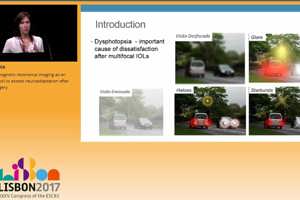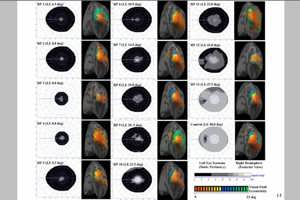NECSUS-Neuroadaptation after Cataract and Refractive Surgery Study
NECSUS Study
Because these symptoms tend to improve overtime, it is thought that the brain adapts to those unwanted stimuli (neuroadaptation). In fact, our vision is determined by how the brain processes incoming retinal input, as vision involves “constructive” perception and not merely the analysis of an optically perfect image.
Neuroplasticity is the ability of the brain to reorganize its connections in response to the changing patterns of inputs from the environment. We hypothesize that multifocal IOLs engaged different forms of plasticity. Functional magnetic resonance imaging (fMRI) has opened an unprecedented opportunity for studying brain activity.
This study aims, for the first time, to identify changes in neural activity patterns after multifocal IOL implantation overtime and their relation with objective and qualitative aspects of visual function. Such information will provide valuable knowledge on the identification of therapeutic targets and of intraocular lens characteristics that are more likely to trigger neuroadaptation circuits effectively and, hence, lead to practical clinical use.
Project leader
Joaquim Carlos Neto Murta
Portugal
Amount awarded by ESCRS
€306,071
Status
PROJECT COMPLETED




